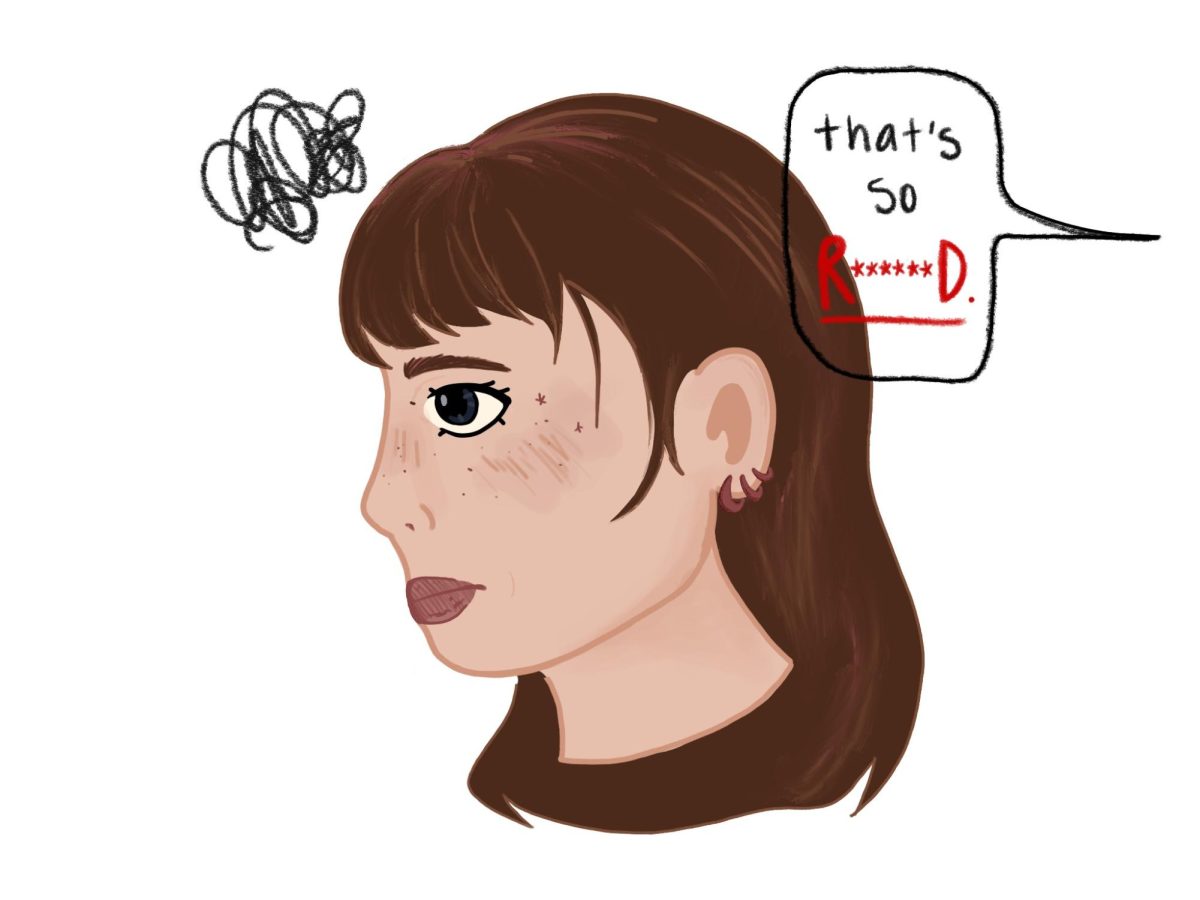Dangers of self-diagnosis
Imagine trying to focus in class, but repeatedly feeling the urge to check your phone for any new notifications. You regularly hear your friends use the phrase “I’m so OCD” if they’re bothered by disorganization or large messes. Or, when attempting to concentrate on a conversation, you notice that you tend to trail off topic. These kinds of symptoms are often associated with ADHD and OCD, two of the most commonly diagnosed behavioral disorders in the United States. However, according to the University of Colorado, symptoms can often be misconstrued, leading to more frequent, inaccurate self-diagnosis.
Misinterpreting symptoms can cause individuals to diagnose themselves if several traits seem to align with a disorder. IB Psychology teacher Kristina Allemeier (she/her) said that this may be due to the influence of pop culture and media.
“It can be harmful, especially when you get to pop-psych that you read in magazines and stuff – ‘OCD: Do You Have These Three Things?’ – and that can be bad, because people start to label themselves or take medication for things they aren’t diagnosed for,” Allemeier said.
Allemeier said that this kind of behavior can be attributed to the innate desire to search for solutions to our problems. Turning to the internet can result in harmful assumptions that may cause people to spiral.
“I think naturally, we’re always looking for answers,” Allemeier said. “We want to know why, and so if we’re feeling some way or acting some way, we’re going to look it up.”
Most people. at some point, will struggle with common symptoms of mental disorders, such as impulsivity, anxiety, irritability, depression or a lack of concentration. The duration, frequency and intensity of functioning are pivotal factors that influence diagnoses. Senior Gigi Grimm (she/her) was medically diagnosed with ADHD four years ago and said it is important to differentiate between experiencing similar symptoms of a disorder and actually having it.
“I think self-diagnosing is — I wouldn’t say dangerous — but it’s almost insulting to people that actually are diagnosed and do have these things, because it’s disregarding what they go through,” Grimm said.
While some do struggle with such symptoms, Grimm said she knows of peers who have attempted to mimic ADHD traits in front of medical professionals to access medication that could help them complete their schoolwork.
“In sophomore year, a bunch of my friends decided that they thought they had ADHD. One of my friends even went on Adderall for it, and they were like, ‘Oh, I don’t like this. This doesn’t do anything for me’ and it’s because they didn’t have ADHD,” Grimm said.
Others who don’t have a diagnosis may even go as far as acquiring medication from their friends who do receive professional treatment for it, which is illegal.
“I think that self-medicating is a big one, because once again, you look it up, and you’re like, ‘Okay, I might have ADHD, what can I do? My mom won’t let me, or I can’t go in and get checked out, but I think that I am,’” Allemeier said. “People find other ways to alleviate that, by using things that they shouldn’t be dabbling into, like pot or getting medications off of other kids who actually do have it.”
The path to diagnosis varies by person. Grimm said that it took her three months to receive an ADHD diagnosis and proper aid. In other cases, Allemeier said it can take even longer or be more difficult to get diagnosed.
“First, sometimes it is hard to access, and it’s really hard to get diagnosed. Then, it would be financial ability, because it’s not cheap to find treatment either,” Allemeier said. “I really think that availability and costs are huge, especially with the American health system in particular.”
Stereotyping with slang
Due to this frequency of inaccurate self-diagnoses, terms for some disorders can become more commonly used in slang. Senior Bobae Park (she/her) said that in some cases it can be okay to speculate a disorder or contact a medical professional for a diagnosis in order to receive medication. However, she also said that assumptions without proper consultation can be harmful, especially if this leads to more frequent use of slang terms to describe different disorders – or even using disorders as slang – as a product of self-diagnosis.
“It completely alters people’s ideas of what it means to be on the spectrum, or what it means to struggle with any type of disorder,” Park said. “Taking a term like ‘autistic’ and putting it into a phrase that’s a joke, like calling someone stupid, takes people who actually do struggle with these disorders and puts them into this ‘Oh, they’re stupid’ category.”
Using the term “autistic” interchangeably in this way can make individuals with autism feel belittled, when in reality there is no correlation between “stupidity” and autism.
In a Nordic News poll of 111 student participants, students were asked to rank the frequency of certain behaviors on a scale from 1-5, with one being the least frequent and five being the most. Eighty-three students selected within the three to five range for the frequency they see slang for disorders used in everyday conversation, such as when peers jokingly refer to each other by using slurs like “slow,” “autistic” or “r******d.” Ninety-two students selected within the same three to five range that they also see slang for disorders used online. Because these slang terms are shown to be used often both on and off campus, Allemeier said that it could potentially be harmful to individuals who actually suffer from them.
Such a mindset can become increasingly normalized when groups of students frequently misinterpret and stereotype such disorders. It can make individuals who do experience disorders feel as though pieces of themselves are being disregarded completely.
“It can negatively impact people, in the sense that it makes them feel like aspects of their identity are being taken away. Also, because it changes people who are easily influenced,” Park said. “I think it makes people feel a sense of shame for their identity in a way, when other people make a joke out of having a certain disorder.”
By having an open mind, such negative behavior can be prevented. Instead of remaining in an environment with those who have this kind of mentality, Park said it is important to surround yourself with all different types of people.
“It’s way easier to stick with people who have similar traits and interests as you, rather than to branch out and meet other people with other perspectives. When people don’t force themselves to learn other perspectives, it becomes really easy for them to think that things are okay,” Park said. “Because no one’s teaching them why it’s bad, and people around them think it is funny, so they just keep doing it.”












